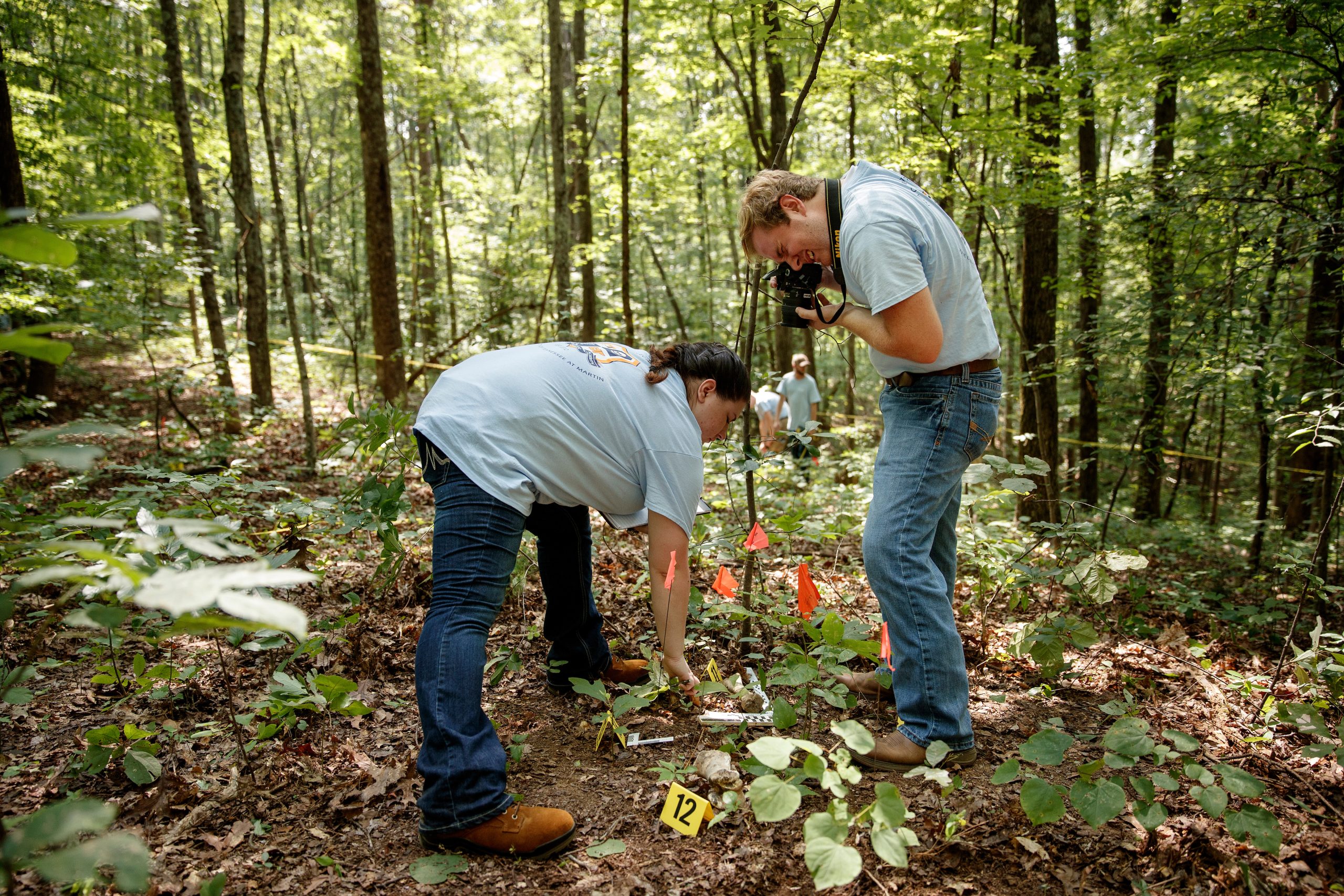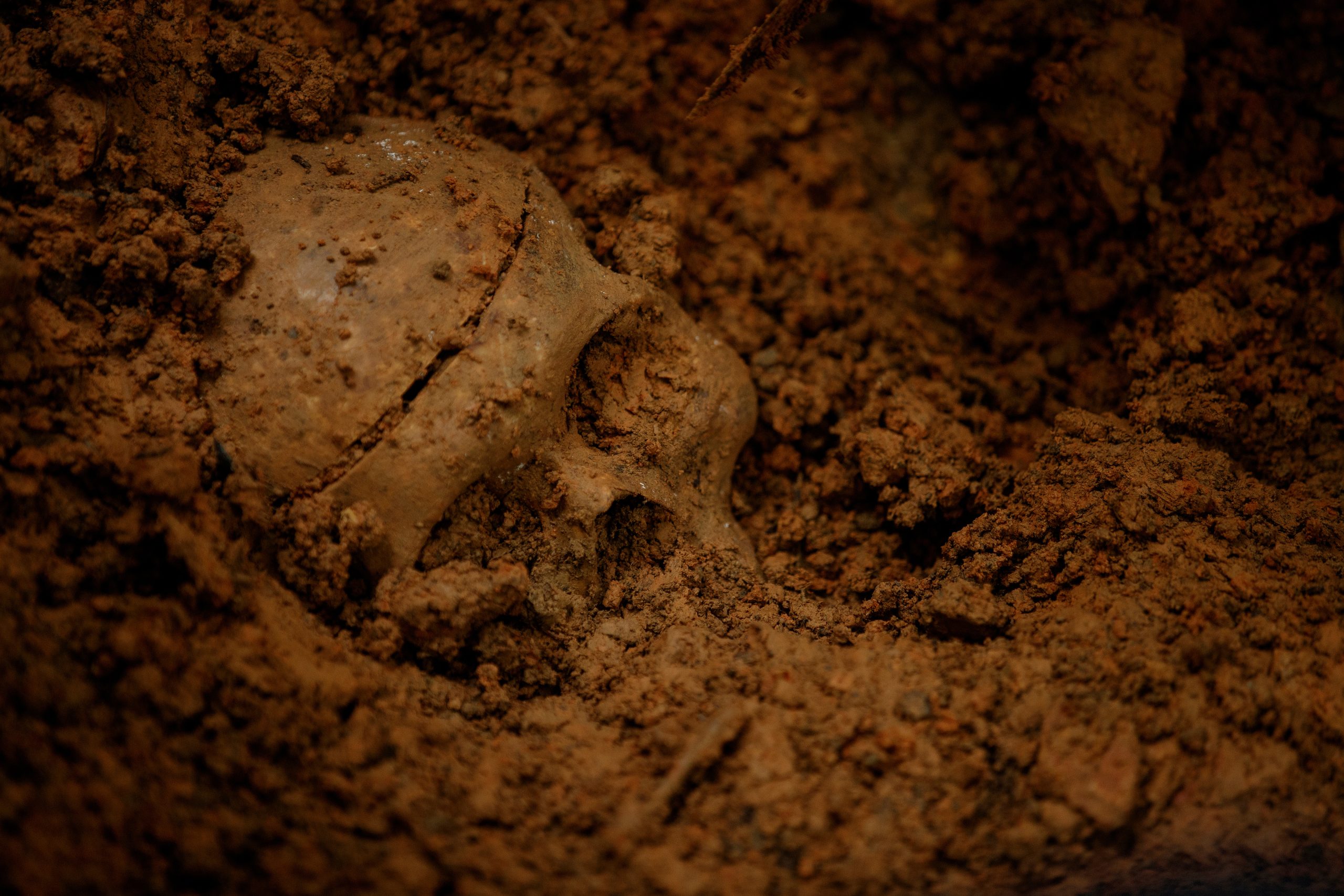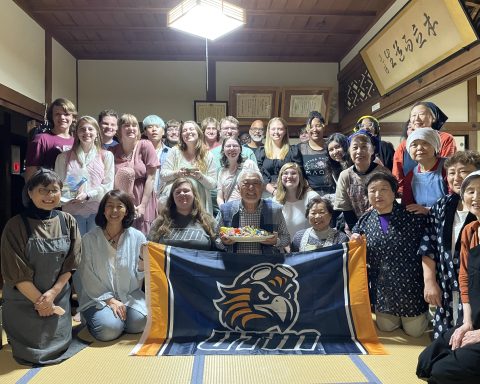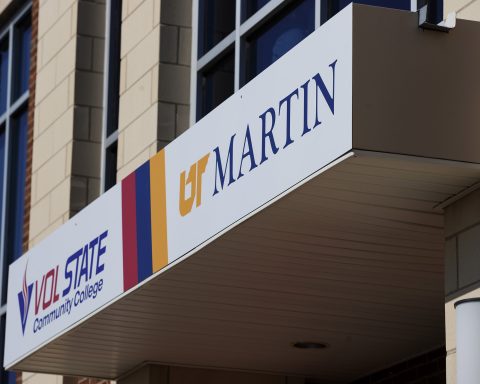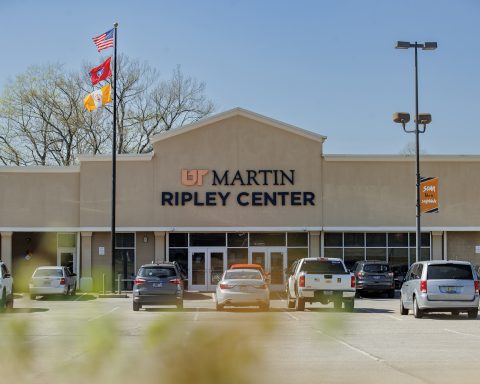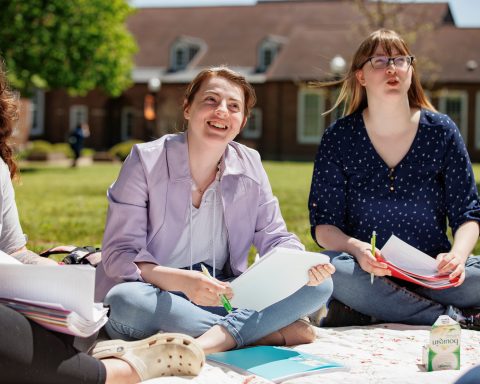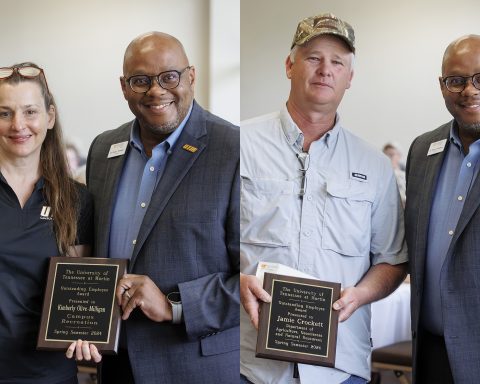College students from across the country gathered in Oak Ridge this past month to spend three weeks studying forensic science from some of the top instructors in the country. The National Forensic Academy Collegiate Program is hosted by the University of Tennessee Law Enforcement Innovation Center and designed in part by the University of Tennessee at Martin.
“There is no other program like this in the country with the quality of instructors we bring in. This cannot be duplicated, and we are happy to share it with students from other universities,” said Dr. Brian Donavant, UT Martin professor of criminal justice and instructor of record for the collegiate academy. Donavant helped design the academy’s curriculum when the program began in 2012. He is also serving as the current interim executive director of UT Martin’s Office of Educational Outreach.
The 2017 class had a maximum enrollment of 28 students, and every seat was filled with another dozen names on the waiting list. Students from California, Nebraska, Connecticut, Utah, Wyoming and other areas joined those from Tennessee to complete the elite academy that will put them ahead of their fellow criminal justice graduates.
Participating students receive a crash-course in fingerprinting, blood spatter analysis, crime scene investigation, DNA analysis and anthropology, among other subjects. The three-week collegiate academy is a condensed version of the 10-week academy completed by law enforcement professionals each year.
“They (the students) are getting the same training that a law enforcement officer would get if they went through a forensic program, and actually they’re getting more training than most officers have had in their careers,” said Dan Anselment, lead instructor for the academy. “For these students to get this type of training, they’re already going to be a step ahead for any agency, any employer they may go to.”
Melanie Allen, a UT Martin senior from Milan, has made a career in crime scene investigation a lifelong goal.
“I was five, and I walked in and my parents were watching CSI and I said, ‘I’m going to do that.’ I’ve stuck with it ever since,” she said. Allen was one of seven UT Martin students to complete the academy this year, and she immediately recognized the value of the unique hands-on experience.
“This will help me a lot. … This is all hands-on. We’ve done fingerprinting and photography. Next week we’re doing blood spatter. We’ve done DNA, and now we’re doing anthropology,” she said. “I will have more training than the normal person would (when applying for jobs), so this will definitely set me apart.”
“I think this gives you a good head start for when you actually get your career started. When your agency does send you out for more training, you’ll have a good start because you already know what to do,” said Brandon Bookout, a UT Martin senior from Gleason. Bookout plans to graduate in the spring and pursue a career in evidence recovery, so the academy provided a real-world look at what his future may hold.
While many of the participants originally became interested in forensic science by watching television shows such as CSI, Bones, and Law and Order, participation in the academy shows them the reality of crime scene investigation and the true work involved to process evidence and convict a criminal.
“The reality with a television show is that they have to take what is factual and speed it up and make it work in 45 minutes,” said Anselment. “So when they do a search for fingerprints or blood, the reality is that most of us will go at least a year before an agency can even get a fingerprint looked at. So everything in television is accelerated. Then, especially with computer systems, they’ll make it look like we have all this technology that we don’t have; it simply doesn’t really exist.”
While the work involved in crime scene investigation may not be as glamorous as it may appear on the screen, there are unexpected benefits to living in a culture saturated with high-tech crime television.
“The plus side for the investigator is that bad guys who watch those shows think we can do these things, so they end up sometimes confessing because they think we can do something that we actually can’t, because they’ve seen it on the show,” said Anselment. “That’s where we coin the phrase, ‘the CSI effect.’ … I’ve also sat on grand juries where they legitimately ask good questions that they would have never known to ask had they not watched a CSI show.”
Students from all parts of the country traveled to participate in this one-of-a-kind experience. Cooper Elam, a senior at Eureka College in Illinois, is one of five Eureka students to enroll in the academy this year through a special partnership between UT Martin and Eureka College.
“The knowledge I’ve gained in just a week and a half of being down here is something I never would have gained just in a classroom…. The hands-on stuff you can do here with the state-of-the-art lab facility they have and having the different experts come is something nobody will be able to experience anywhere else,” he said.
Not all participating students plan to specialize in crime scene investigation, and skills learned during the academy can be applied to a wide variety of criminal justice fields. Marissa Munger, a student at the University of Tennessee, Knoxville, and native Maryland resident, plans to gain a master’s degree in computer science and pursue a career in cyber security.
“I had an internship with the security administration at the Smithsonian in (Washington) D.C. From that internship last summer, I learned that it’s better to be out there in the field … instead of just sitting in an office and making judgments,” she said. “If a cyber-attack is related to a physical attack, it’s nice to have this background knowledge.”
All participating students must apply and be admitted to UT Martin in order to enroll in the academy and receive nine hours of college credit in return for their investment. Students are also required to create a portfolio demonstrating the skills they learn during the academy, and some have presented these portfolios at conferences across the country.
“This is the sixth year we’ve hosted this collegiate academy, and we only have 137 graduates,” said Donavant. “That tells you how selective this program is. Not only are we extending out and offering this course to students in other places, but we’re actually attracting students to relocate and work here, and that contributes to Tennessee’s economy and quality of life.” Several students from previous academy classes have relocated to the Volunteer State and are giving their talents back to the state and the university system that trained them.
For more information on the National Forensic Academy Collegiate Program or the UT Martin criminal justice curriculum, contact Donavant at bdonavant@utm.edu or 731-881-3510.
###

